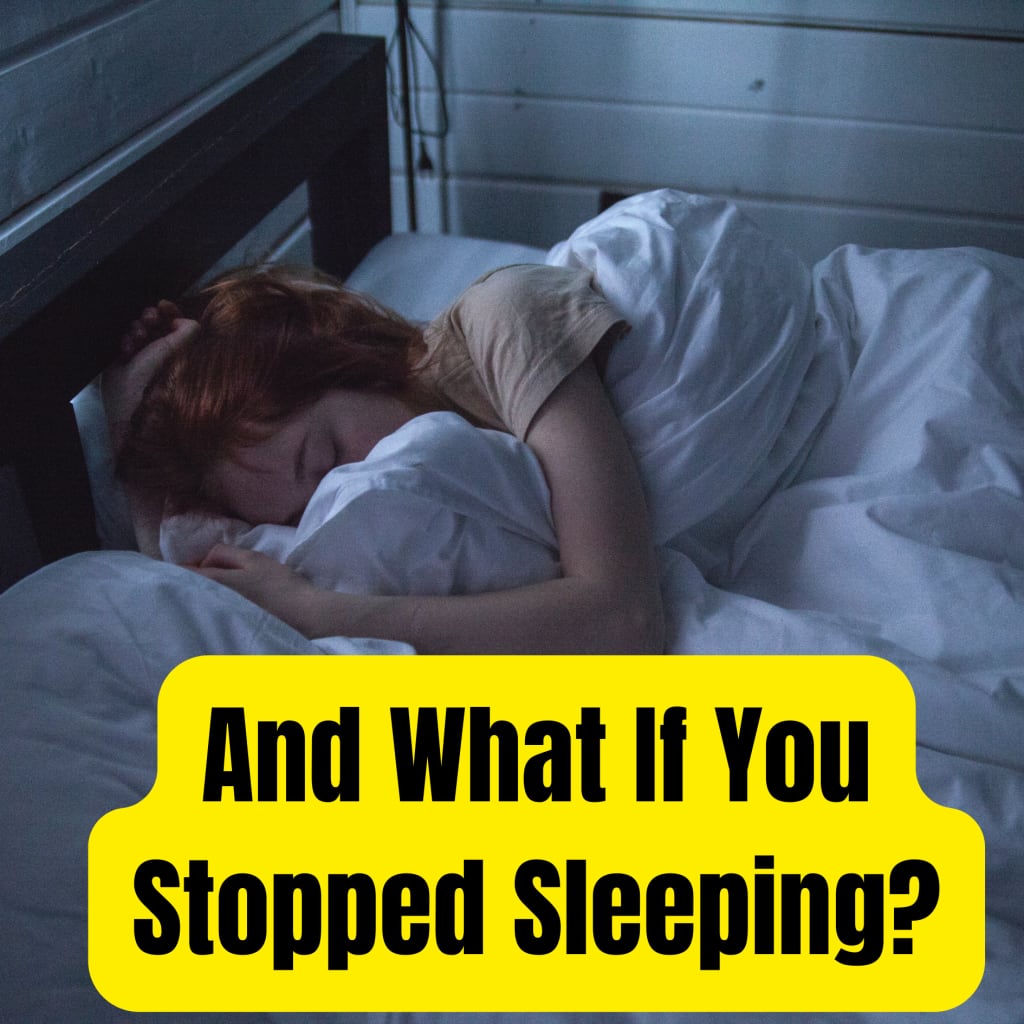And What If You Stopped Sleeping?
The Science of Sleep: What Happens When You Don't Get Enough Rest

If you took sleep out of your daily routine, you'd have all 24 hours of the day to do everything you never had time for. But what's a few yawns and some minor tiredness if it meant you never had to waste any more time lying in bed for no good reason? Turns out, there are plenty of good reasons to sleep.
The average person spends one-third of their life lying in bed, eyes shut, and snoring away. It may sound like a waste of valuable time, but not for your body. While you sleep, your body releases hormones and repairs tissues, replacing your old cells with new ones. If you worked out that day, you need a good sleep to let your muscles grow and your fat burn.
As the hours without sleep add up, the effects on the body become more and more apparent. The initial burst of energy and euphoria is short-lived and soon gives way to fatigue, irritability, and impaired cognitive function. The dopamine release from the mesolimbic pathway that initially made you feel good is no longer able to keep you going.
In fact, studies have shown that prolonged sleep deprivation can have serious consequences on your mental health. It has been linked to an increased risk of depression, anxiety, and even suicidal thoughts. Without proper rest, the brain is unable to regulate emotions and react appropriately to stressors, leading to a vicious cycle of negative thoughts and feelings.
In addition to the mental toll, sleep deprivation also takes a physical toll on the body. Lack of sleep has been linked to a weakened immune system, making you more susceptible to illnesses such as the common cold or flu. It can also lead to weight gain and an increased risk of developing chronic health conditions such as diabetes, heart disease, and stroke.
Overall, while the idea of never having to sleep again may seem appealing, the consequences on both the body and mind are not worth it. Adequate sleep is essential for optimal health and well-being, and should not be sacrificed in the pursuit of productivity or achievement.
As the sleep deprivation continues, the effects on the body become more severe. The lack of sleep not only affects cognitive function, but it also leads to physical deterioration. The breakdown of proteins in the muscles leads to a loss of muscle mass and weakness in the body. This can make simple tasks like walking or even standing difficult.
In addition to the physical effects, the lack of REM sleep can lead to vivid and terrifying hallucinations. The brain struggles to distinguish between reality and the dream world, causing the individual to experience intense hallucinations that can be both frightening and disorienting. The hallucinations can be so vivid that the individual may even act upon them, leading to potentially dangerous situations.
As the days without sleep continue, the individual's health deteriorates rapidly. The immune system becomes weakened, leaving the individual vulnerable to infections and illnesses. The body's ability to regulate hormones and other bodily functions also becomes impaired, leading to a range of health problems, including heart disease and diabetes.
It's important to note that prolonged periods of sleep deprivation can have serious long-term effects on an individual's health. Even short-term periods of sleep deprivation can have negative impacts on cognitive function, mood, and overall well-being. Therefore, it's crucial to prioritize sleep and ensure that we get enough restful sleep each night to allow our bodies and minds to recharge and stay healthy.
Your body would keep using up all the energy sources - your confined glucose leftovers, your muscles, fat tissue. After about two weeks, your immune system would be so weak that you could die from the common flu. Eventually, three weeks after your last sleep, you'd probably die of a heart attack. If you've got a little extra muscle or fat on your body, you could stay alive just a bit longer.
In conclusion, sleep is essential for our physical and mental health. While the idea of never having to sleep again may seem attractive, the consequences of sleep deprivation are severe and potentially life-threatening. So, grab yourself a pillow and take a siesta if it seems like you're always tired. Make sure you're getting the prescribed six to eight hours of sleep per night, and you'll be amazed at how much better you'll feel.
About the Creator
thingsandstuffzy
Writing about things that people should know about because they need to know about things. Isn't this exciting?






Comments
There are no comments for this story
Be the first to respond and start the conversation.